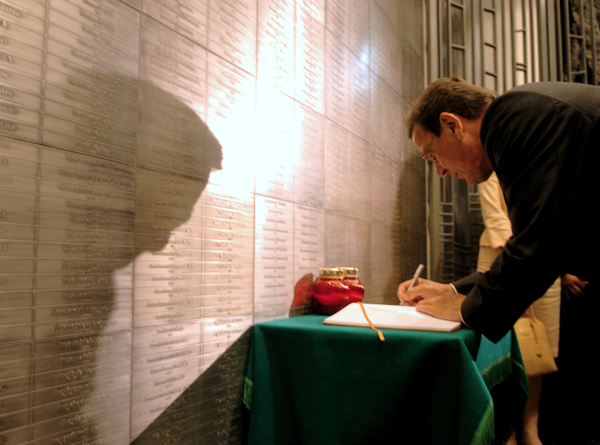Source

Source: Bundesregierung, B 145 Bild 00002087 Photo: Julia Fassbender.
Gerhard Schröder was also invited to Poland to mark the 60th anniversary of the Warsaw Uprising. On August 1, 2004, he became the first German chancellor to ever participate in commemorative events in Warsaw. At the time of his visit, two developments had put the Polish-German relationship under strain: the Federation of Expellees in Berlin was planning to open a “Center against Expulsions” [“Zentrum gegen Vertreibungen“] and the “Prussian Trust” [“Preußische Treuhand”], an organization founded by expellees, was demanding the restitution of property in Germany’s former Eastern territories. To counter Polish criticism, Schröder delivered a speech in which he praised the Polish Home Army for resisting the German occupation, rejected German demands for the restitution of property on Polish lands, and likewise rejected plans for the “Center against Expulsions.” Schröder emphasized that Polish-German cooperation within the framework of the European Union would play an important role in shaping the “future of free nations in a united Europe,” but he also stressed the significance of cultural and youth exchange between the two countries.

Source: Bundesregierung, B 145 Bild 00002087 Photo: Julia Fassbender.